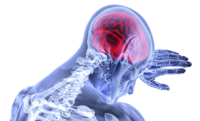Acopia: Difference between revisions
No edit summary |
No edit summary |
||
| Line 10: | Line 10: | ||
The term 'acopia' may bias clinicians thought processes and cause diagnosis to be missed and reversible pathology to be underdiagnosed.<ref name="Obeid">Obeid J, Ogle S. Acopia: a useful term or not? Australasian Journal of Aging 2000;19:195-8.</ref><ref name=":0">Hodges Z. Diagnosis of “acopia”: prescription for neglect?. [https://www.emerald.com/insight/content/doi/10.1108/JAP-01-2021-0005/full/html The Journal of Adult Protection]. 2021 May 18.</ref> | The term 'acopia' may bias clinicians thought processes and cause diagnosis to be missed and reversible pathology to be underdiagnosed.<ref name="Obeid">Obeid J, Ogle S. Acopia: a useful term or not? Australasian Journal of Aging 2000;19:195-8.</ref><ref name=":0">Hodges Z. Diagnosis of “acopia”: prescription for neglect?. [https://www.emerald.com/insight/content/doi/10.1108/JAP-01-2021-0005/full/html The Journal of Adult Protection]. 2021 May 18.</ref> | ||
A study carried out within an NHS District General Hospital found that nearly half of patients described as having ‘acopia’ presented with geriatric syndromes, such as [https://www.physio-pedia.com/Falls falls], immobility and confusion.<ref name="Keel and Rippingale">Keel YK, Rippingale C. [https://r.search.yahoo.com/_ylt=Awr9DuCDy6lhcicAzwFXNyoA;_ylu=Y29sbwNncTEEcG9zAzEEdnRpZANEMTExMF8xBHNlYwNzcg--/RV=2/RE=1638546435/RO=10/RU=https%3a%2f%2facademic.oup.com%2fageing%2farticle-abstract%2f38%2f1%2f103%2f40975/RK=2/RS=NSImf_v.wT7MSgRfOWmyIpx90qc- The prevalence and characteristic of patients with ‘acopia]'. Age Ageing 2009; 38(1): 103-105.</ref> The authors argued that the definition of acopia should be an inclusive term to describe the frail elderly patient with multiple medical problems, enabling health professionals to identify when specialist intervention is needed within the multi-disciplinary team. | A study carried out within an NHS District General Hospital found that nearly half of patients described as having ‘acopia’ presented with geriatric syndromes, such as [https://www.physio-pedia.com/Falls falls], immobility and confusion.<ref name="Keel and Rippingale">Keel YK, Rippingale C. [https://r.search.yahoo.com/_ylt=Awr9DuCDy6lhcicAzwFXNyoA;_ylu=Y29sbwNncTEEcG9zAzEEdnRpZANEMTExMF8xBHNlYwNzcg--/RV=2/RE=1638546435/RO=10/RU=https%3a%2f%2facademic.oup.com%2fageing%2farticle-abstract%2f38%2f1%2f103%2f40975/RK=2/RS=NSImf_v.wT7MSgRfOWmyIpx90qc- The prevalence and characteristic of patients with ‘acopia]'. Age Ageing 2009; 38(1): 103-105.</ref> The authors argued that the definition of acopia should be an inclusive term to describe the frail elderly patient with multiple medical problems, enabling health professionals to identify when specialist intervention is needed within the multi-disciplinary team. | ||
== Viewing == | |||
This 6 minute video highlights the negative aspects of using Acopia as a word. {{#ev:youtube|https://www.youtube.com/watch?v=f53F-dAg_5Q|width}}<ref>Association for elderly education. Acopia- the diagnosis for doctors who can't cope. Available from: https://www.youtube.com/watch?v=f53F-dAg_5Q (last accessed 5.5.2019)</ref> | |||
== References == | == References == | ||
Revision as of 07:36, 19 November 2022
Top Contributors - Alex Palmer, Kim Jackson, Lucinda hampton, Lauren Lopez, Chrysolite Jyothi Kommu, Chelsea Mclene and Aminat Abolade
Introduction[edit | edit source]
The word 'acopia' is often used to describe a patient’s inability to cope with activities of daily living. This term is disrespectful, implying fault on the part of the patient. Such patients are likely to be frail with co-morbidities and have an acute (potentially reversible) illness. Frail older persons should be assessed using the principles of Comprehensive Geriatric Assessment, informed by an understanding of the concept of frailty and of geriatric syndromes, for example falls and delirium.
The term 'acopia' may bias clinicians thought processes and cause diagnosis to be missed and reversible pathology to be underdiagnosed.[1][2]
A study carried out within an NHS District General Hospital found that nearly half of patients described as having ‘acopia’ presented with geriatric syndromes, such as falls, immobility and confusion.[3] The authors argued that the definition of acopia should be an inclusive term to describe the frail elderly patient with multiple medical problems, enabling health professionals to identify when specialist intervention is needed within the multi-disciplinary team.
Viewing[edit | edit source]
This 6 minute video highlights the negative aspects of using Acopia as a word.
References[edit | edit source]
- ↑ Obeid J, Ogle S. Acopia: a useful term or not? Australasian Journal of Aging 2000;19:195-8.
- ↑ Hodges Z. Diagnosis of “acopia”: prescription for neglect?. The Journal of Adult Protection. 2021 May 18.
- ↑ Keel YK, Rippingale C. The prevalence and characteristic of patients with ‘acopia'. Age Ageing 2009; 38(1): 103-105.
- ↑ Association for elderly education. Acopia- the diagnosis for doctors who can't cope. Available from: https://www.youtube.com/watch?v=f53F-dAg_5Q (last accessed 5.5.2019)







